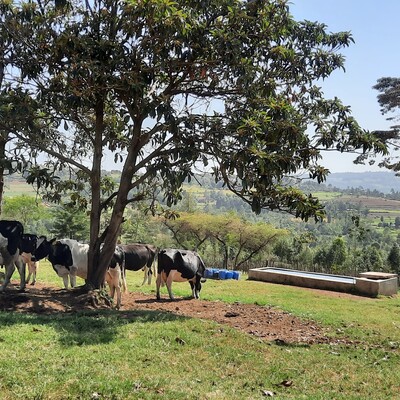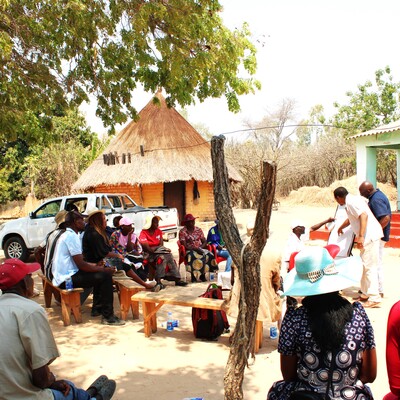

Ukama Ustawi field days: Sharing the best livestock-crop production systems
The Ukama Ustawi (U2) initiative recently convened successful field days in Murehwa and Shamva districts, Zimbabwe, to promote livestock production and diversified maize-based agriculture systems which are managed under sustainable intensification. The field days, attended by about 100 farmers provided an opportunity to showcase the work being done by farmers under the U2 initiative, and also opened channels for dialogue and reflections on the initiative’s successes and lessons learned.
The guest of honour at Murewa field day, held in ward 9, Matongorere village was Douglas Makuvire, Murewa district agricultural extension officer. He commended ILRI’s efforts in bridging the knowledge gaps in livestock production and development of cost-effective on-farm feed formulations.
‘As a district we appreciate ILRI for sharing information and technical expertise with farmers on the importance of forage legumes in livestock production. Farmers should use the knowledge for their own benefit and treat livestock as a business that can sustain their livelihoods.’
Besides impacting them with skills on fodder production, feed formulation and feeding, and other livestock productions practices, the Ukama Ustawi initiative is working with the Department of Agricultural, Technical and Extension Services (AGRITEX) extension officers to have a wider reach in the district. According to Mr Makuvire, the initiative is reaching at least 3 per cent of the households in each of the three wards (wards 9, 10 and 11), with calls from the district agriculture extension officer to out scale to other wards.
The field day in Shamva District was at Willis and Priscilla Nyamusanduka’s farm in Madziva Ward 25 where they are successfully growing their small herd of Boer goats into an enterprise. The Nyamusandukas, who are also U2 lead farmers shared how they are now able to manage fodder crops from planting to feeding.
‘When I fed velvet bean to my heifer, it produced a lot of milk, even my neighbours were interested to know what I was feeding it with,’ stated Willis Nyamusanduka.
He further testified how he exchanged three female indigenous goats to procure a cross-bred Boer buck following successful feeding using fodder and maize-based diets.
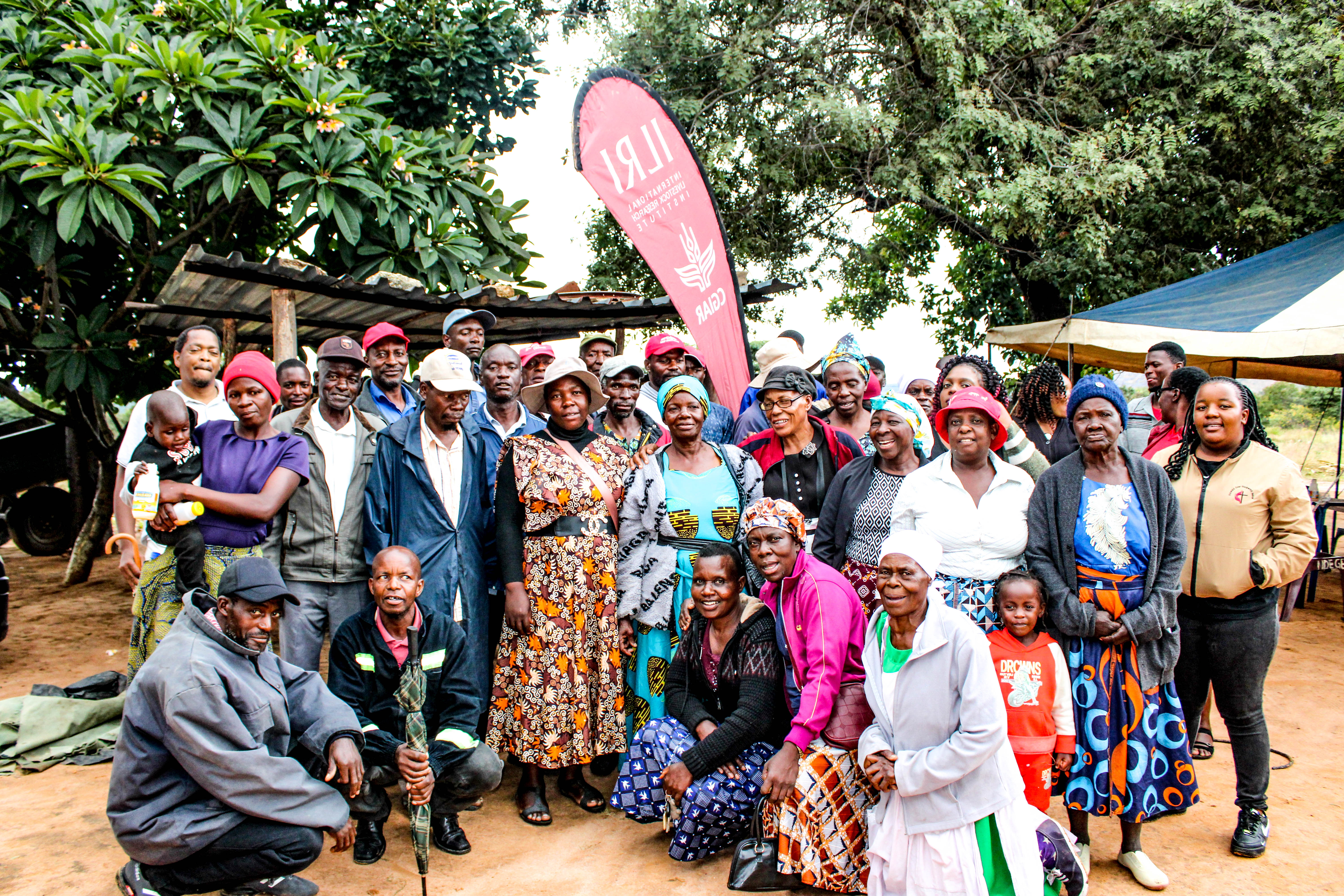
‘The 2023/2024 season was affected by the El Nino-induced drought which brought about a serious threat to food security. However, all hope is not lost as this is an opportunity to invest in livestock which can be a climate change shock absorber,’ noted Logic Ndlovu from Shamva District’s agricultural extension office.
He encouraged farmers to diligently invest in livestock by saving some space in their fields for fodder production to ensure that livestock have feed.
In Murewa, the Ukama Ustawi initiative handed over a chopper-grinder to the community for use in crushing fodder crops to bite size pieces.
The Murewa field day was attended by farmers, students from Bindura University of Science Education and Midlands State University, Grain Marketing Board Murewa depot manager Hazvinei Gangai, AFC Commercial Bank Murehwa branch manager Admire Mutawarira.
The field day in Shamva District was attended by farmers, local traditional leaders and AGRITEX officers.
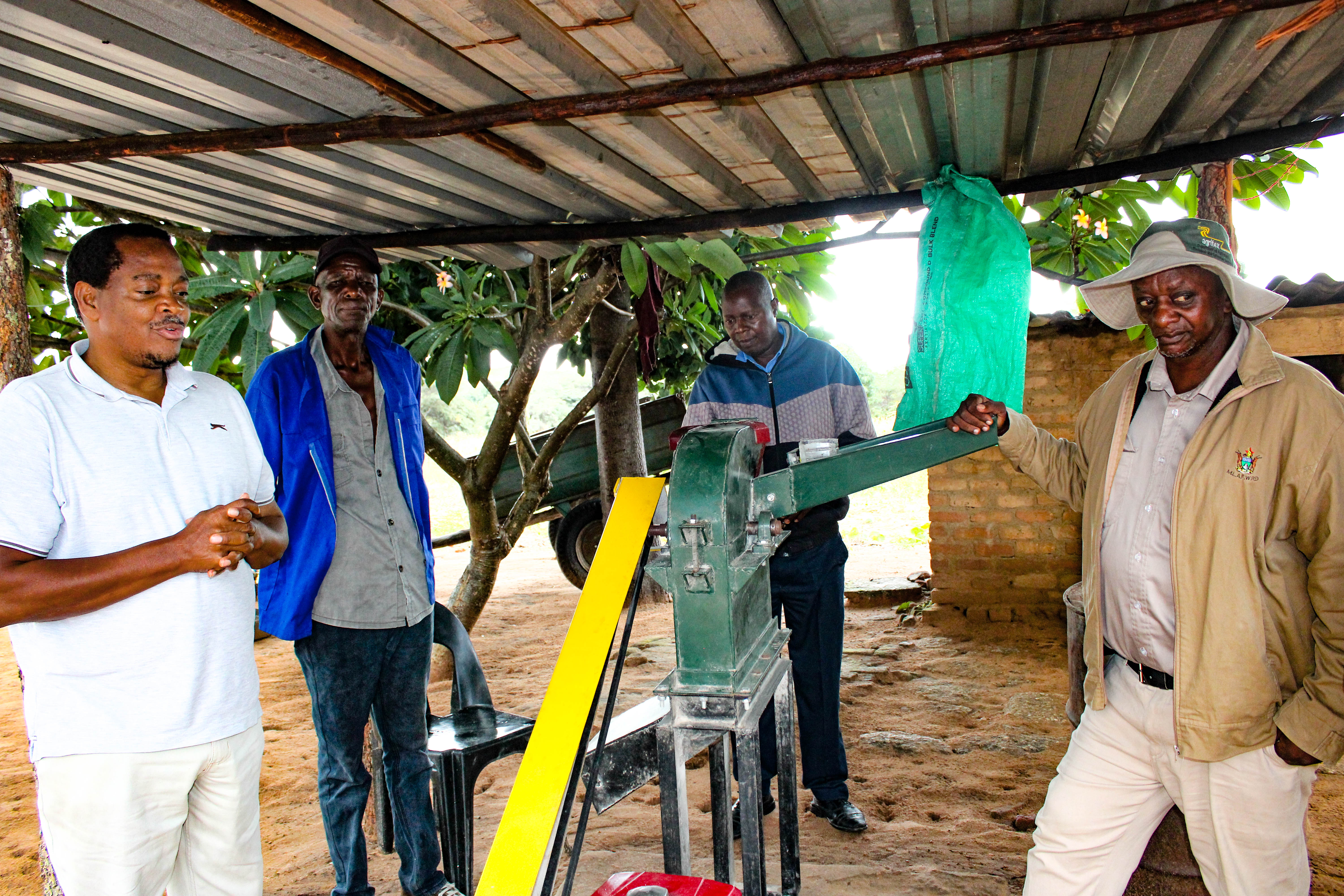
You may also like
ILRI News
Tanzania launches Africa Accelerated Innovation Delivery Initiative-Livestock project to boost poultry productivity

ILRI News
The Africa RISING end-of-program report: Highlights of a legacy of agricultural research in development for a sustainable future
Related Publications

Ubushikiranganji bw’ibidukikije, uburimyi n’ubworozi: ifishi yo kurima no kwimbura ubwatsi bwa brachiaria
- International Livestock Research Institute
- International Institute of Tropical Agriculture
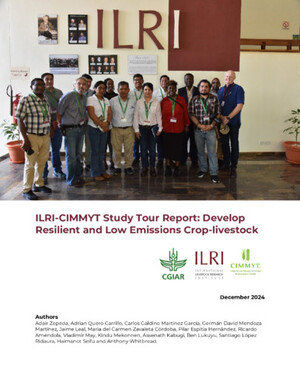
ILRI-CIMMYT Study Tour Report: Develop Resilient and Low Emissions Crop-livestock
- Zepeda, Adair
- Carrillo, Adrian
- García, Carlos
- Martínez, David
- Leal, Jaime
- Córdoba, Maria del
- Hernández, Pilar
- Améndola, Ricardo
- May, Vladimir
- Mekonnen, Kindu
- Kabugi, Assenath
- Lukuyu, Ben A.
- Ridaura, Santiago
- Seifu, Haimanot
- Whitbread, Anthony M.

Manuel de production et utilisation des cultures fourragères climato-intelligentes
- Bimenyimana, Alain V.
- Munyaneza, N.
- Iribagiza, A.
- Ntirandekura, J.B.
- Kwizera, A.
- Nzisabira, D.
- Ndayikengurukiye, E.
- Karega, D.
- Manayonsa, O.
- Ahimpera, F.
- Nimbona, F.
- Nizigiyimana, D.
- Karikurubu, L.
- Nyabongo, Lionel

Ubushikiranganji bw’ibidukikije, uburimyi n’ubworozi: ifishi yo kurima no kwimbura chloris gayana/rhodes grass
- International Livestock Research Institute
- International Institute of Tropical Agriculture





